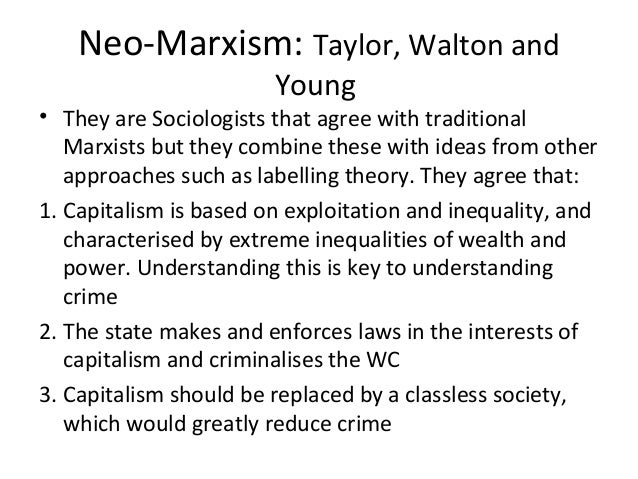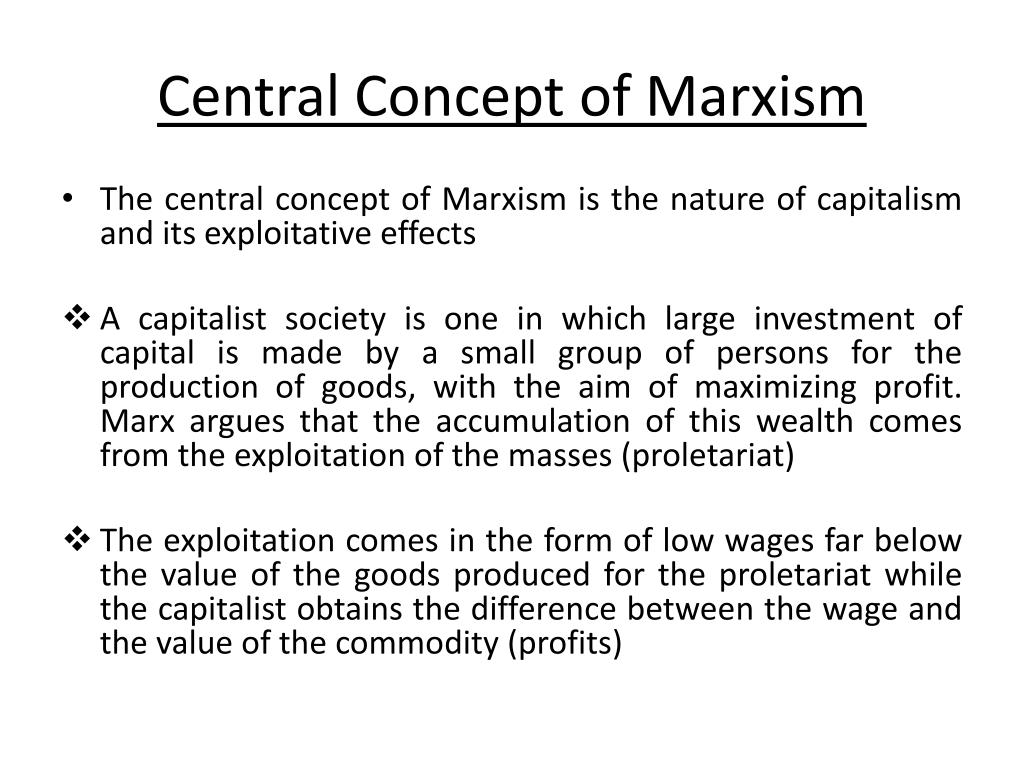

Uneven development: The tendency within a capitalist economy for industries, economic sectors and countries to develop at very different rates due to the pressures generated by the quest for profit. This task, which I will begin to sketch out in this chapter, requires the suspension of two, usually implicit, assumptions of the capitalism-as-victor approach to the post-Soviet era. Neo-Marxism: An updated and revived form of Marxism that rejects determinism, the primacy of economics and the privileged status of the proletariat.

This chapter engages in a task that seems to have been neglected in the rush to express hopeful appraisals of (once) current events: an inquiry into the current theoretical state of neo-Marxism, whether it be responsible or irresponsible, whether grounded in sensible causal judgment or paranoid fantasy. For traditional Marxism the main role and function of education is cultural reproduction a concept based on a different. The year 1989, marking the fall of the Berlin Wall, has become shorthand for tremendous changes in the way our world is constituted, above all the end of a bipolar world order, but it still remains difficult to see events clearly, to prioritize them, and maybe to discard some hasty assumptions.


 0 kommentar(er)
0 kommentar(er)
